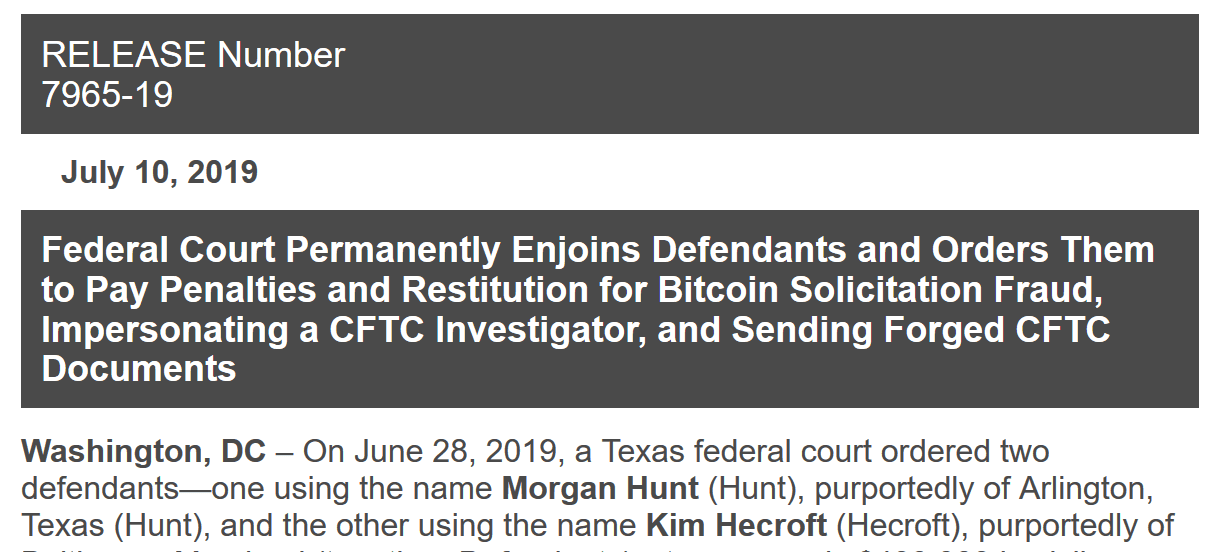CFTC Charges
In September 2018, the U.S. Commodity Futures Trading Commission (CFTC) charged two US citizens — Morgan Hunt and Kim Hecroft — with fraudulent solicitation and investment fraud. In a Complaint filed in the U.S. District Court for the Northern District of Texas, the CFTC alleged that Hunt and Hecroft engaged in a fraudulent scheme to solicit Bitcoin from investors, through false or misleading representations or omissions.
Court Order
On June 28, 2019, the court ordered the two defendants to pay nearly $400,000 in civil monetary penalties and restitution. In an Order and Default Judgment (Order) filed June 28, 2019, the court found that Hunt, doing business as Diamonds Trading Investment House, and Hecroft, doing business as First Options Trading, engaged in a fraudulent scheme to solicit Bitcoin from investors in trading products including leveraged or margined foreign currency contracts (forex), binary options, and diamonds.
The Order requires Hunt and Hecroft to pay restitution and a $180,000 civil monetary penalty each. Moreover, the Order imposes permanent trading and registration bans on Defendants, and permanently enjoins them from further violations of the Commodity Exchange Act and CFTC Regulations, as charged.
Lies, fakes, misappropriation, and fraud
Between January 2017 and the filing of the CFTC Complaint on September 28, 2018, the Defendants used Facebook and email to fraudulently solicit Bitcoin from investors, falsely claimed that they would use their funds to invest in trading for their benefit, misrepresented their experience and track record as traders and portfolio managers.
They falsely told customers that they could not withdraw their purported investment profits without first paying a tax to the CFTC, and misappropriated customer funds. Defendants’ fraudulent actions included providing fake account statements, impersonating a CFTC investigator, and sending forged documents purportedly authored by the CFTC’s General Counsel and bearing the image of the CFTC’s official seal.
